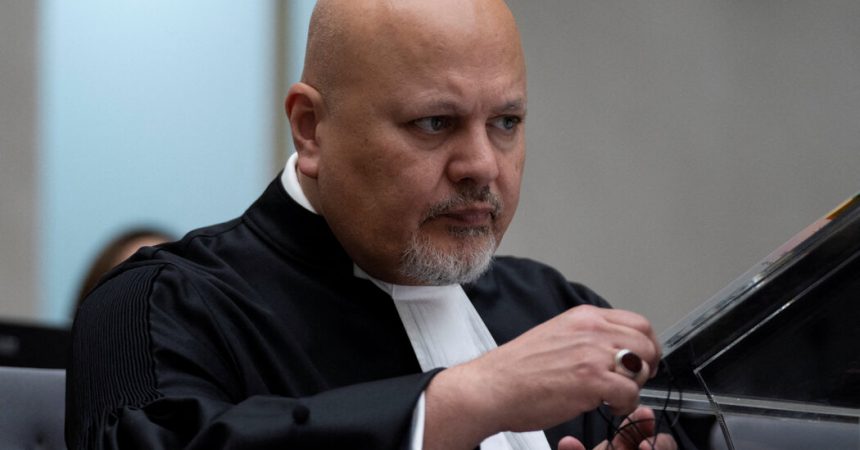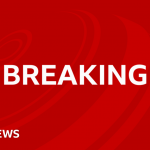The prosecutor of the International Criminal Court said on Monday that he had requested arrest warrants for war crimes and crimes against humanity for Prime Minister Benjamin Netanyahu of Israel and the leaders of Hamas. Here’s a closer look at the court and the warrant.
Why did the International Criminal Court prosecutor request the warrants?
The court’s prosecutor, Karim Khan, said in a statement that he was applying for arrest warrants for Yahya Sinwar, Mohammed Deif and Ismail Haniyeh of Hamas because he had “reasonable grounds to believe” that they were responsible for war crimes and crimes against humanity, which included “the killing of hundreds of Israeli civilians” in the Hamas-led Oct. 7 attacks in Israel, and the taking of at least 245 hostages.
Mr. Khan said that the Hamas officials “planned and instigated the commission of crimes” on that day, and that they “have acknowledged their responsibility for those crimes” through their actions, such as personal visits to hostages shortly after their kidnapping.
Mr. Khan also said that he had requested arrest warrants for Mr. Netanyahu and Israel’s defense minister, Yoav Gallant, because he believed they bore responsibility for war crimes and crimes against humanity, including the starvation of civilians as a weapon of war and “intentionally directing attacks against a civilian population.”
Mr. Khan said that these crimes were committed “as part of a widespread and systematic attack against the Palestinian civilian population.” He also said that in his office’s view, some of the crimes “continue to this day.”
What is the International Criminal Court?
The International Criminal Court is the world’s only permanent international court that can prosecute individuals accused of war crimes, genocide and crimes against humanity. It was established in 2002 to investigate those crimes under a 1998 treaty known as the Rome Statute. Before that, the United Nations Security Council had set up dedicated tribunals to address atrocities in places like the former Yugoslavia and Rwanda.
The I.C.C. is based in The Hague, a Dutch city that has long been a center for international law and justice. It is separate from the International Court of Justice, also an international tribunal in The Hague, which is currently assessing a claim brought by South Africa that Israel is conducting a genocide in Gaza. Israel has strongly denied the accusation.
Many democracies joined the International Criminal Court, including close American allies like Britain. Israel is not a member of the court, and the United States has also long kept its distance, fearing that the court might one day try to prosecute American officials. Russia is also not a member.
Last year, the International Criminal Court issued arrest warrants for President Vladimir V. Putin and a second Russian official, saying they bore individual criminal responsibility for the abduction and deportation of Ukrainian children in the wake of Russia’s full-scale invasion of Ukraine in 2022.
What could the warrants mean for the officials?
Mr. Khan’s request must still be approved by judges from the court. The fact that Israel is not a member of the court means that it does not recognize its jurisdiction in Israel or Gaza. But if warrants are issued, Mr. Netanyahu, Mr. Gallant and the Hamas officials could be arrested if they travel to one of the court’s 124 member nations, which include most European countries.
The I.C.C. cannot try defendants in absentia, and has no police force, and it relies on its members to make the arrests. When arrested, suspects are typically transferred to The Hague to appear before the court.
Still, the warrant represents one of the harshest condemnations of Israel’s strategy in its war against Hamas and its campaign’s toll on Gaza’s civilian population. It also adds scrutiny to Hamas’s Oct. 7 raid that killed more than a thousand people.
On Monday, Israel’s foreign minister, Israel Katz, said that he had ordered the immediate establishment of a special committee aimed at fighting the decision, which he said “was intended first and foremost to tie the hands of the State of Israel and deny it the right of self-defense.”
The “scandalous” prosecutor’s decision, he said, “is a frontal attack without restraint on the victims of Oct. 7 and our 128 hostages in Gaza.”
In a statement on Telegram, Hamas condemned the warrant requests against its leaders. It said that the prosecutor should demand the arrest not only of Mr. Netanyahu and Mr. Gallant but of all “leaders, officers and soldiers who participated in crimes against the Palestinian people.”







